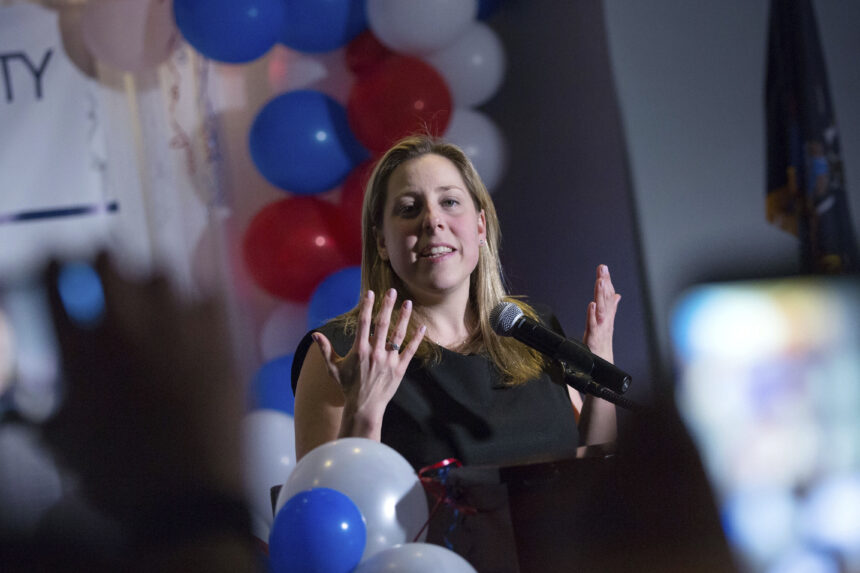In the lead-up to the 2026 midterms, Democrats are turning to a new type of candidate to gain an edge: mothers of young children. This shift marks a departure from the traditional political playbook, as these candidates are leveraging their experiences as mothers to connect with voters.
JoAnna Mendoza, a single mother of a 9-year-old son, launched her congressional bid in Arizona’s Sixth Congressional District earlier this year. Christina Hines, a mother of three, is running for an open seat in Michigan’s 10th Congressional District, while state Sen. Sarah Trone Garriott, a mother of two, is vying for Iowa’s 3rd Congressional District.
Motherhood, once viewed as a potential liability in politics, has now become a central theme in the campaign messaging of these Democratic candidates. They are not only highlighting their professional backgrounds but also emphasizing their roles as caregivers and decision-makers within their families.
Sarah Trone Garriott, who raised an impressive $230,000 within the first 24 hours of her campaign launch, is framing her candidacy around her identity as a “public school mom.” This approach resonates with voters who appreciate the perspective and dedication that mothers bring to the table.
Supporting these candidates is Vote Mama, a PAC dedicated to electing mothers of minor children to public office. With 70 endorsed candidates and growing momentum, the organization is tapping into a groundswell of energy from mothers who are frustrated with Republican-led efforts to cut funding for family support programs.
While the political landscape is shifting to embrace mothers as candidates, challenges remain. Recent debates over proxy voting in Congress have highlighted the tensions between traditional expectations of lawmakers and the realities of balancing parental responsibilities.
Christina Hines, motivated by policy changes affecting the education system, carefully weighed the impact of her campaign on her family before deciding to run. This internal struggle reflects the thoughtful approach that many mothers take when considering a run for office.
In their campaign messaging, these mothers are not shying away from their identities as parents. Dr. Annie Andrews, a pediatrician running for Senate in South Carolina, emphasizes her busy life as a mom while also highlighting her expertise in healthcare policy.
The early enthusiasm for these candidates is evident in their fundraising efforts and endorsements. JoAnna Mendoza, for example, raised over $816,000 in her first FEC filing and secured endorsements from influential political organizations like BOLD PAC and VoteVets.
As these mothers navigate the complexities of running for office, they are breaking new ground and reshaping the political landscape. Their unique perspectives and experiences as parents offer a fresh approach to governance and policymaking, resonating with voters who are eager for change.







